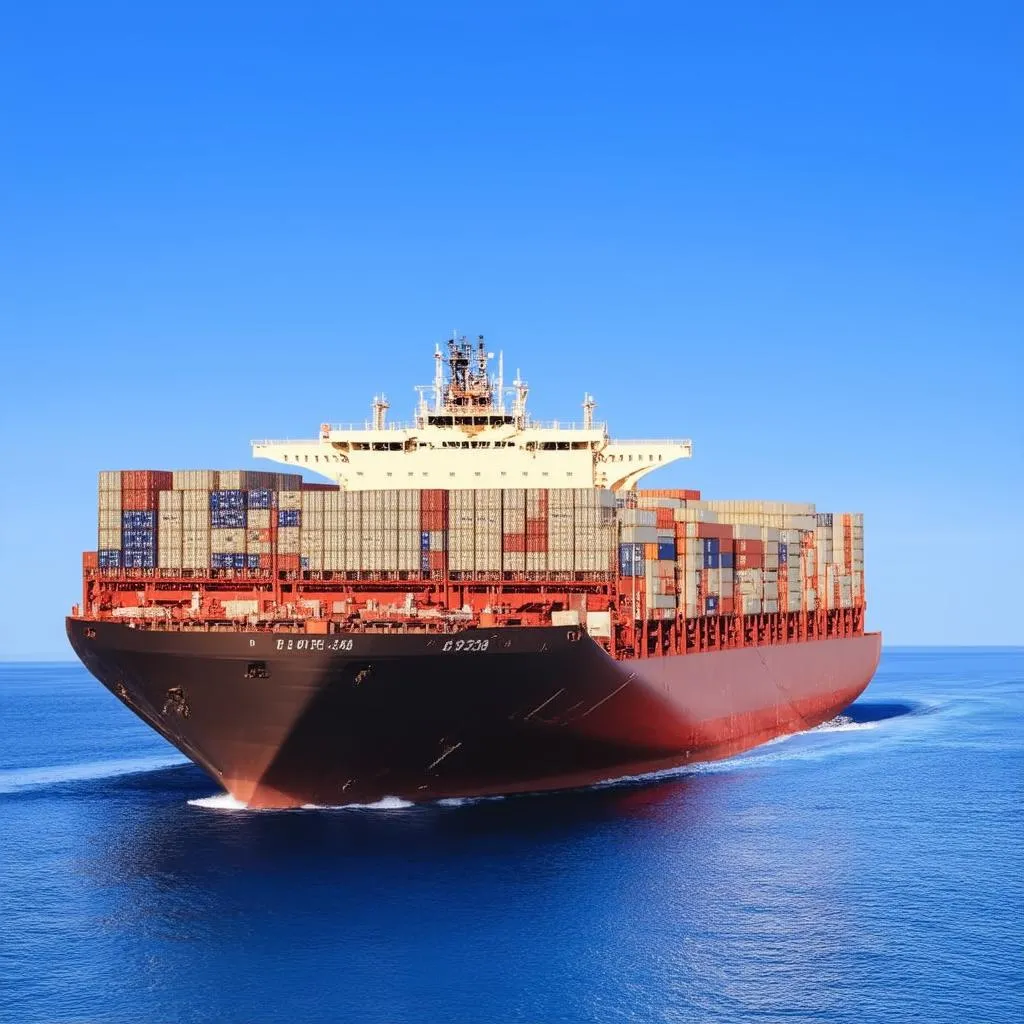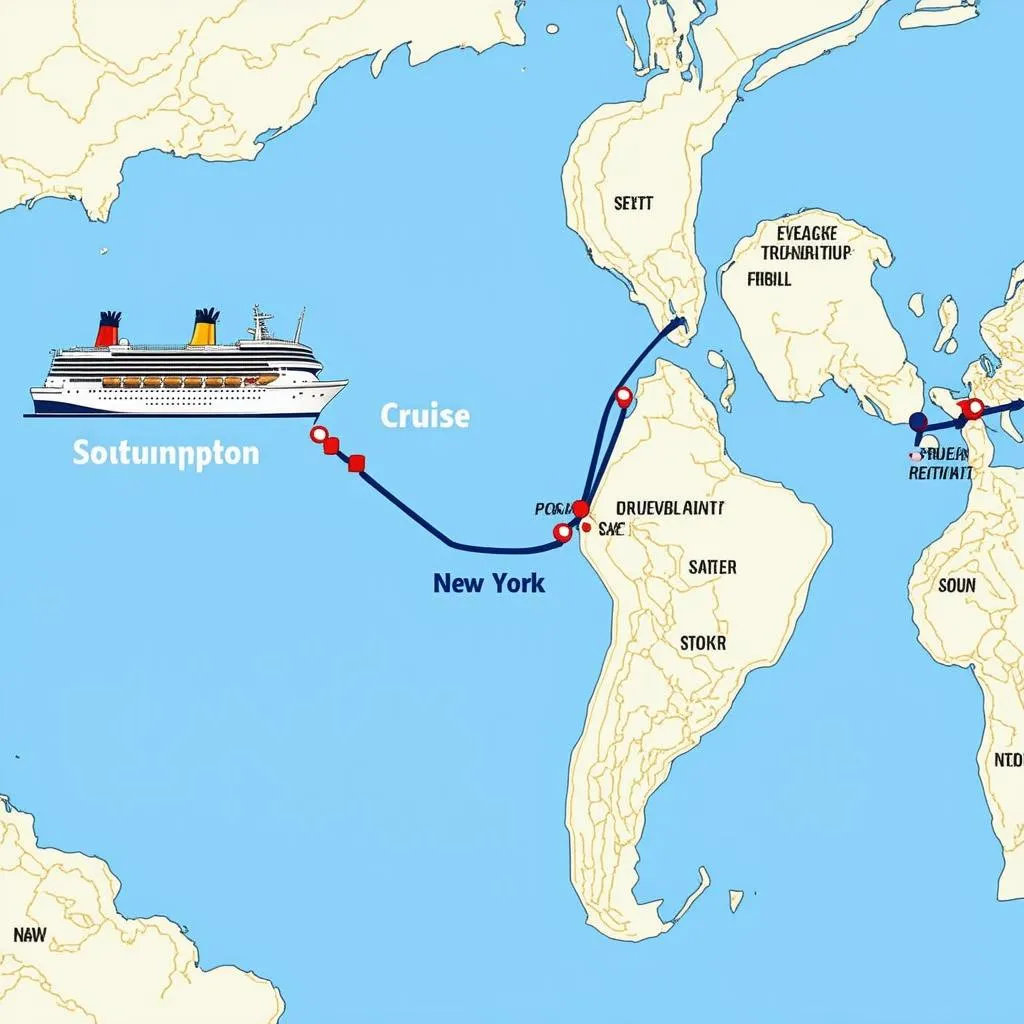Remember that childhood dream of sailing across the vast ocean, the wind in your hair, the sun on your face? Maybe you envisioned yourself aboard a majestic cruise ship, gliding effortlessly towards exotic destinations. But have you ever stopped to wonder, “How fast does a ship actually travel?” The answer, my friend, is not as simple as it seems. It’s a journey into the world of knots, nautical miles, and the fascinating factors that influence a ship’s speed.
Factors Influencing a Ship’s Speed
Just like a car navigating through city streets or a plane soaring through the sky, a ship’s speed isn’t constant. It’s a delicate dance between several key factors:
1. Ship Type: A nimble speedboat will obviously outpace a colossal cargo ship. Cruise ships, designed for comfort and leisure, typically travel at speeds of 18-22 knots (20-25 mph), while cargo ships, often laden with tons of goods, might cruise at 10-15 knots (11-17 mph).
2. Engine Power: This one’s a no-brainer. A more powerful engine translates to greater speed. Imagine the difference between a small outboard motor and the massive engines propelling a container ship!
3. Weather Conditions: Think about those choppy seas and fierce winds. Adverse weather conditions can significantly impact a ship’s speed, forcing it to slow down for safety. Conversely, favorable winds and calm waters can provide a welcome boost.
4. Water Resistance: Water, despite its fluidity, offers resistance. A ship’s hull design, its size, and even the cleanliness of its hull (barnacles can really slow things down!) all play a role in determining how efficiently it moves through the water.
5. Cargo Load: This one applies mainly to cargo ships. A heavily laden ship will naturally travel slower than a lighter one. It’s like carrying a heavy backpack – the heavier it is, the slower you go.
 Cargo Ship Speed
Cargo Ship Speed
Delving Deeper: Knots and Nautical Miles
Now, let’s decode some nautical jargon. You’ll often hear a ship’s speed expressed in knots. A knot is equivalent to one nautical mile per hour. A nautical mile, slightly longer than a statute mile we use on land, measures approximately 1.15 statute miles.
But why use knots and nautical miles? Well, it’s all about navigation. A nautical mile is based on the Earth’s circumference and is directly related to latitude and longitude, making it the preferred unit of measurement for seafarers.
Planning Your Seafaring Adventure: What to Expect
Let’s say you’re planning a transatlantic cruise from Southampton to New York. A typical cruise ship might cover this distance in about 6-8 days, depending on the route and stops along the way.
Imagine yourself on deck, watching the sun dip below the horizon as you glide past the Azores. Or perhaps you’re on a cargo ship, witnessing the bustling activity at the Panama Canal.
 Cruise Ship Itinerary
Cruise Ship Itinerary
FAQs: Answering Your Burning Questions
Q: What is the fastest ship in the world?
A: While speed records are constantly being broken, the Spirit of Australia, a wave-piercing catamaran, holds the current record for the fastest ship, clocking in at a staggering 344.88 knots (over 396 mph)!
Q: How does a ship’s speed compare to other modes of transport?
A: Ships, especially cargo ships, are the tortoises of the transportation world. While they may not be the fastest, they are incredibly efficient at moving vast quantities of goods over long distances. Think of it as a trade-off – speed for capacity and cost-effectiveness.
Embark on Your Own Journey
So, the next time you see a ship majestically gliding across the water, take a moment to appreciate the intricate interplay of factors influencing its speed. From the power of its engines to the whims of the ocean, it’s a testament to human ingenuity and our enduring fascination with the sea.
For more travel inspiration and insights, be sure to explore other fascinating articles on TRAVELCAR.edu.vn. Who knows? Your next adventure might be just a click away!

